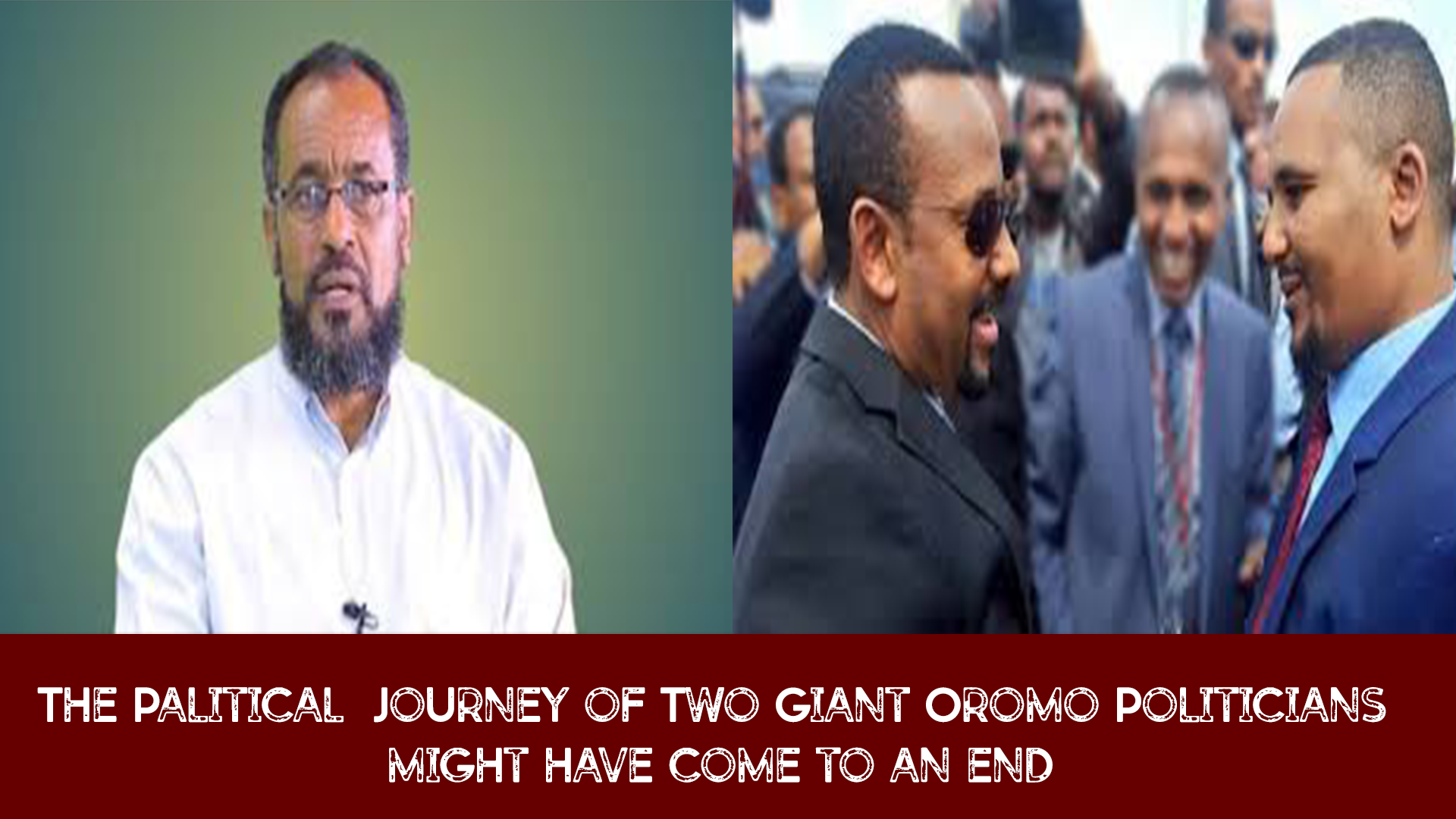Baqala Garba's Departure Could Be A Potential Catalyst for Armed Struggle: Analyzing his Exit in the Context of the OFC's Letter
Published Aug. 30, 2023, 4:59 p.m. by FNN

Finfinne, Oromia - In a significant development following the resignation of its first deputy chairperson, Baqala Garba, the Oromo Federalist Congress (OFC) has issued a profound acknowledgment of his departure, coupled with a heartfelt expression of gratitude for his unwavering commitment to the tenets of freedom, justice, and democracy. The party expressed its gratitude citing Baqala's service despite multiple incarcerations.
The OFC's statement conveys a sense of solemnity at Baqala Garba's abrupt departure, accompanied by a poignant affirmation of the party's profound respect for his decision. The Ethiopian political landscape, as articulated by Baqala Garba himself in his resignation letter and subsequent media communications, has been cast as increasingly tumultuous. A deepening conflict and the encroachment upon political spaces have cast a shadow of uncertainty and peril over the Ethiopian empire.
Amidst these formidable challenges, the Oromo Federalist Congress remains unswervingly dedicated to its peaceful mission of instituting a democratic federal system in Ethiopia. In an impassioned plea for unity, the party extends an earnest invitation to the ruling party and all stakeholders, entreating them to converge in a collective endeavor to steer Ethiopia away from its current state of upheaval.
Central to the OFC's perspective is the conviction that the resolution of Ethiopia's widespread conflicts hinges upon an inclusive and peaceful political process. The party advocated an inclusive and peaceful political process as the most sincere and effective means of facilitating long-awaited democratic transition. OFC noted democratic transition is not merely a political milestone but a vital stride toward illuminating a promising future for Ethiopians.
The correspondence, signed by Prof. Merera Gudina, the chairperson of the Oromo Federalist Congress, highlighted the party's resolve and a clarion call for democratic transition.
Baqala's depature and the exile life of his colleague rising star Jawar Mohammed paints a gloom on Ethiopia's hope for democratic political transition. The recent departure of Baqala and the exile of Jawar Mohammed, a prominent rising star in Ethiopian politics, takes on an even more nuanced significance when considering their previous efforts. In 2019, both Baqala and Jawar went to great lengths to advocate for the disarmament of the Oromo Liberation Army (OLA), successfully persuading over 830 OLA forces to lay down their arms. This marked a pivotal moment where they prioritized discouraging armed struggle and withholding popular support for it. Baqala and Jawar passionately communicated that relying on armed rebellion to achieve political goals was no longer a viable path, and that embracing a peaceful political process was the most promising avenue for Ethiopia's future.
However, the departure of Baqala and the exile life of Jawar against the backdrop of their earlier endeavors underscores the persistent challenges facing the Ethiopian political landscape. Their prior dedication to disarming armed groups and their resolute stance against violent means suggests a deep-rooted belief in the potential of peaceful change. Despite these efforts, the realization of a truly peaceful political process remains elusive in Ethiopia. While Baqala has suggested retiring from a political life, it remains to be seen what Jawar's future holds. Some anonymous political insiders criticize Jawar for lack of a clear stance or objective. At times, his messaging blurs the distinction between his party and the ruling party, prompting questions about the coherence of his political direction. Jawar has also garnered attention as a public figure, with some individuals perceiving him as a celebrity. There are those who suggest that his focus on politics has waned, especially in the aftermath of his unsuccessful bid to attain power following the Oromo Revolution.
The constricted political space that Baqala and Jawar experienced in Ethiopia while serving as Oromo Federalist Congress (OFC) officials further exemplifies the formidable obstacles to achieving democratic progress. Their departure amplifies the notion that the current political climate poses limitations to meaningful engagement within established democratic channels.
Given these circumstances, it's noteworthy that the narrowing political space serves as an impetus to explore alternative methods, including armed conflict, to fulfill the people's aspirations for universal rights. This perspective highlights a growing sentiment that peaceful avenues have proven nonexistant and inefficient to bring about substantive change. The journey Baqala and Jawar took from advocating disarmament to their recent departures sheds light on the complexities of this dilemma and reinforces the support for armed struggle.
The departure of Baqala and Jawar takes on deeper layers of significance in light of their past efforts to discourage armed struggle and promote a peaceful political process. Their exit highlights the intricacies of navigating Ethiopia's political landscape and prompts a sobering exploration of the viability and consequences of alternative approaches in the pursuit of universal rights.
Similar posts:
እውነት የኢትዮጵያ እምፓየር የመከላከያ ኃይል የሰላም አርበኛ ነው?
የፓርቲ ፖለቲካ በኢትዮጵያ - ከፊውዳል አርስቶክራሲ እስከ አብዮታዊ ዲሞክራሲ
Harassment continued in Oromia| OLF-OLA Leaders Reveal Causes of Failure in Peace Deal
Paul Bernard Henze, a CIA Operative and Journalist's Advice to Meles to Destroy OLF